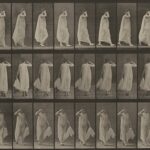Seven Gen Z and cusp-Millennials working in philosophy give their perspective on internet and TikTok-viral aesthetics. Continue reading

March 7, 2024
by Aesthetics for Birds
2 Comments


March 7, 2024
by Aesthetics for Birds
2 Comments
Seven Gen Z and cusp-Millennials working in philosophy give their perspective on internet and TikTok-viral aesthetics. Continue reading

February 3, 2023
by Aesthetics for Birds
4 Comments
Scholars John Gibson, Magdalena Ostas, and Hannah Kim discuss how art creates meaning, and how we play a role in that meaning-making. Continue reading

February 11, 2022
by Aesthetics for Birds
0 comments
In making art, we make ourselves into something beyond what our original authors may have intended. Continue reading
April 8, 2020
by Alex King
0 comments
Now that increasing numbers of people are stuck at home and sheltering in place, I figured I’d do a little series. Every weekday for the duration of this intense period, I’ll post a short definition of some term in/related to aesthetics and philosophy of art. Let’s see how this goes! See them all here. Terms of Art #13: semiotics
February 13, 2020
by Aesthetics for Birds
0 comments
What follows is a guest post by Shen-yi Liao, Aaron Meskin, and Joshua Knobe. They offer an overview and summary of the ideas in their new paper, “Dual Character Art Concepts,” just out in Pacific Philosophical Quarterly. (Non-paywalled version available here.) Alfie: This sculpture is not art. I know many people think it is art, but when you think about what art really is, you will realize that it is not art at all. Betty: Of course this is art. It is in the Los Angeles County Museum of Art! Alfie: I know. But all the same, it’s not a true work of art. It’s impersonal factory-produced rubbish. Betty: Wait, I agree that this sculpture is completely awful in every way, but still, it’s obviously a piece of art.

October 18, 2019
by Aesthetics for Birds
1 Comment
What follows is a guest post by Marilynn Johnson. A Compulsive Con Man On January 4, 2016, a man who identified himself as Jeremiah Asimov-Beckingham walked into a New York City police station wearing a Harvard sweatshirt, a Wounded Warrior baseball hat, and military dog tags. He had come to inquire about an impounded BMW but was instead quickly arrested and charged with a crime. Why had this wealthy military veteran and Harvard grad been arrested? It turns out his name is Jeremy Wilson, not Jeremiah Asimov-Beckingham, and he had been arrested on charges of fraud. For years he had been traveling the country, adopting different personas. In New York, he had been living as Jeremiah Asimov-Beckingham, but this character was a fabrication.
November 8, 2018
by Aesthetics for Birds
0 comments
What follows is a guest post by Espen Hammer on his recent edited volume Kafka’s The Trial: Philosophical Perspectives. When reading works of literature, philosophers often look for very general assertions of a quasi-theoretical nature. Thus, Camus’s The Stranger – to pick an obvious example ̶ is supposed to demonstrate the absurdity of human existence. Or, if that doesn’t satisfy them, they typically start discussing entirely abstract questions of meaning, representation, and reference – of interest to academics steeped in Frege, Russell, and Davidson yet devoid of any concrete relation to actual texts of literary significance. Kafka, however, on which a recent edited volume of mine entitled Kafka’s The Trial: Philosophical Perspectives (OUP, 2018) focuses, is peculiar in that his texts so vigorously seem to resist such general accounts. To be sure, many philosophers have tried to see in Kafka a kind of visionary thinker either of human existence as such … Continue reading
May 29, 2018
by Roy T Cook
0 comments
Jack Woods interviewed by Roy Cook for AFB Jack Woods is University Academic Fellow in Mathematical Philosophy (боже мой) at the University of Leeds. Prior to this post, he worked at Bilkent University (in Ankara, Turkey). He studied at the University of Minnesota (MA) and took his PhD from Princeton University. He works in philosophy of logic and mathematics, as well as metaethics, the theory of normativity, and philosophy of language. Recent publications include “The Authority of Formality” (Oxford Studies in Metaethics, vol 13), “Logical Partisanhood” (Philosophical Studies), “Intertranslatability, Theoretical Equivalence, and Perversion” (Thought), and “Emptying a Paradox of Ground” (Journal of Philosophical Logic). Prior to studying and working as a philosopher, he played in short-lived punk bands and worked as a bouncer at clubs in Boston, including the Rat, the Middle East, and P.J. Kilroys (Fathers Too), nearly all of which are now closed.
March 27, 2018
by Roy T Cook
0 comments
Frank Boardman interviewed by Roy Cook for AFB Frank Boardman is is a visiting assistant professor at Worcester State University. Most of his work has been in philosophy, art and rhetoric. He has a completely unwarranted belief that he could also write about parenting, technology or basketball.